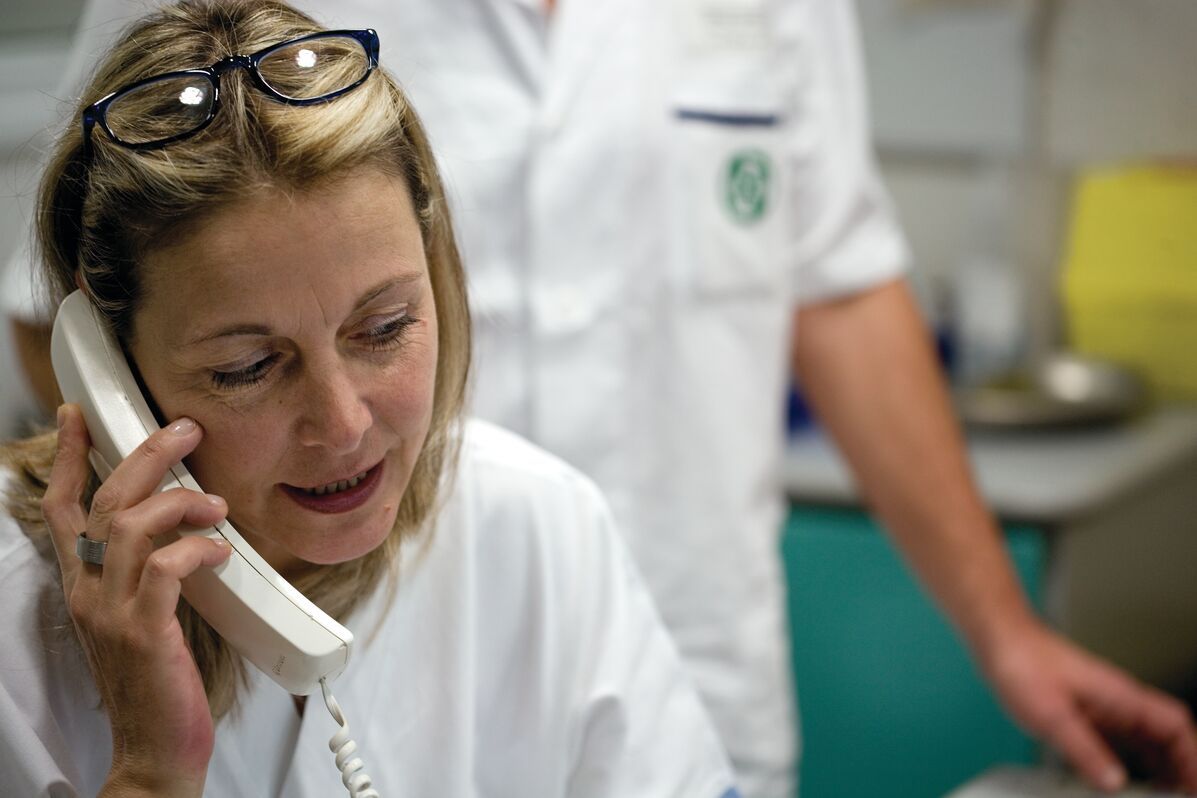Cardinal Health MarketSM
The legacy Cardinal.com Medical Ordering site has been replaced with Cardinal Health MarketSM, a new product experience designed with you in mind.

Innovations are driving continuous advancements in specialty medications – the complex drugs that often offer the most effective (and sometimes, the only) treatment for chronic conditions or rare diseases that in the past have had few treatment options.
Specialty medications make up the largest proportion of new medicines launched in the past five years, according to IQVIA, a company that provides advanced analytics and clinical research services to the life sciences industry. But, even as they hold the promise of better health outcomes, these specialized therapies often require clinical management, special storage, handling, administration and monitoring – and patient education. They are costly and can be difficult for patients to access.
“Unlike a more traditional prescription that you could get at your local pharmacy, specialty medications are fulfilled by specialized pharmacies that may require more qualifying information about the patient and disease state or enrollment into specialized programs,” says Josh Marsh, vice president and general manager of Cardinal Health Sonexus™ Access and Patient Support. “This extra information needed, along with high costs, can delay access to potentially life-saving medications, or even block access altogether.”
For example, in Cardinal Health’s latest issue of Oncology Insights, researchers explored how patient access issues affect patients with cancer, finding that nearly 90% of participating oncologists said that prior authorization is a significant barrier when they are considering initiating treatment with a new specialty medication for a patient, and 80% of oncologists feel that these delays can negatively impact patient outcomes.
That’s where Sonexus™ Access and Patient Support comes in: Sonexus™ works with specialty pharmaceutical manufacturers and patients to remove barriers to health care, giving patients a clearer path to their prescribed medications. Every year, Sonexus™ serves more than 250,000 patients with cancer, rheumatology diseases like osteoarthritis, rheumatoid arthritis, or rare diseases.
“Our role in the health care ecosystem is to remove the obstacles patients face to get them on the therapies they need faster to promote a better quality of life,” Marsh said.
Read on to discover how Sonexus™ helps patients gain access to complex therapies faster.
Building patient-centric support services
To help patients who are prescribed specialty medications, many pharmaceutical companies outsource “patient hubs,” like Sonexus, where patients can get access and support services from nurses, case managers and staff who help open the lines of communication and bring clarity to the process, helping them navigate their treatment journey.
Janet Weidenbach, BSN, RN, OCN, program manager at Sonexus™ Access and Patient Support, leads the nursing team and sees just how confusing the patient journey can be, especially when it comes to high-cost therapies. For example, a patient may be covered by insurance, but their out-of-pocket cost for a specialty drug may be as much as $20,000 or more. “Our team will figure out the out-of-pocket costs and get patients approved for co-pay or free drug programs or even connect patients with foundations that can offer more support,” Weidenbach said. In addition, “Many times patients are prescribed a therapy by their doctor, but then may not hear from their care providers or insurance company about next steps for weeks,” she said. “Our team works to shorten the waiting time, in some cases. We also help patients simply by answering their questions and alleviating the fear of the unknown.”
Harnessing data and analytics for a better patient experience
Leveraging new technology has been particularly important in reducing the need for patient support staff to complete the repetitive and time-consuming tasks – like insurance benefits verification and prior authorization – that often are required when a specialty medication is prescribed.
“Healthcare is still very much dependent on faxes and inefficient phone communications to facilitate paperwork,” Marsh said. “Many of these communications tasks can now be automated, which will ultimately make way for the patients to receive the prescribed therapies faster.”
The team at Sonexus™ uses the latest technology from the very first patient interaction. With artificial intelligence (AI), machine learning and natural language processing tools, the team identifies both clinical and socioeconomic data points to ensure that patient support teams are spending time with the right patients. For example, while some patients may be content with one phone call or even a text message, other patients may need more support to navigate their treatment journey, and these patients get more interactions with the Sonexus™ team.
Data and analytics also can be used to identify meaningful behavior patterns to help determine whether patient access and medication adherence strategies are working, or if they need to be modified. During the COVID-19 pandemic, for example, Sonexus™ used AI and machine learning tools to identify patients who were at risk of medication nonadherence based on an uptick of conversations that focused on unemployment, financial concerns and quarantine. After sharing this trend with pharmaceutical manufacturers, the manufacturers made the decision to change the financial requirements of their patient assistance programs, ensuring the cost of the therapy would not prevent patients from accessing their medication.
As IQVIA research suggests, there is a clear connection between patient support programs and patient outcomes.
“With the specialty pharmacy market expected to increase over the next decade, the need for building out patient-centric platforms and solutions like those we offer through Sonexus™ will be increasingly vital to improved patient outcomes,” Marsh said. “Sonexus™ is continually working to connect patients with therapy quicker, helping patients to stay adherent to their specialty medications, and educating them all along their healthcare journey.”